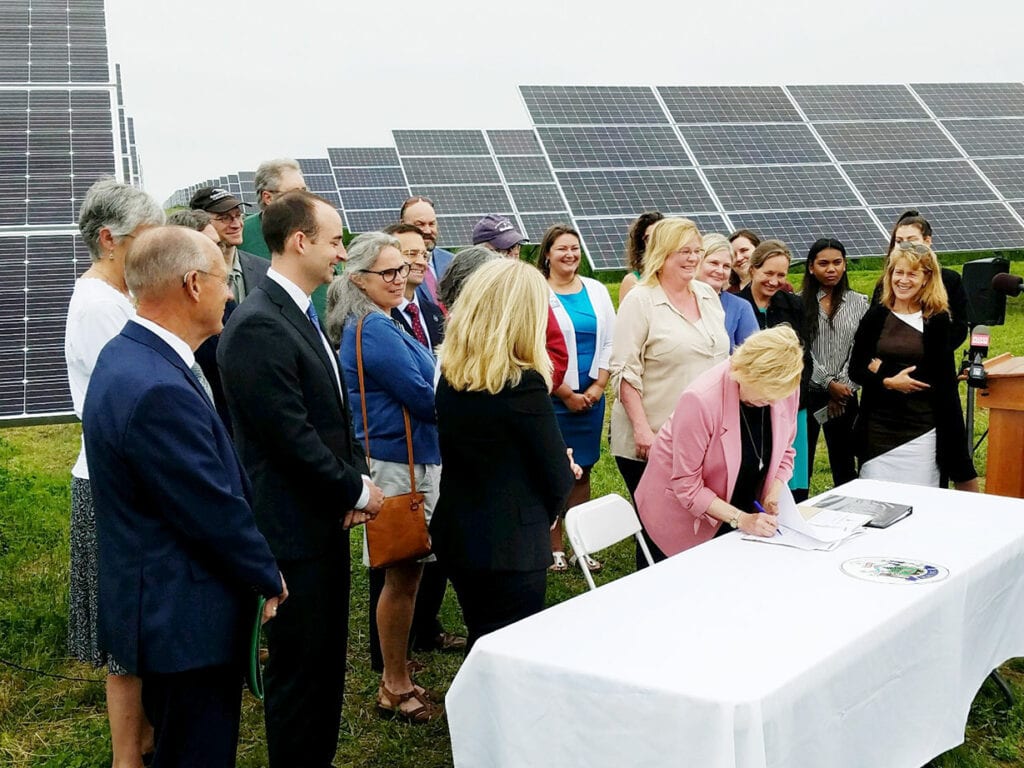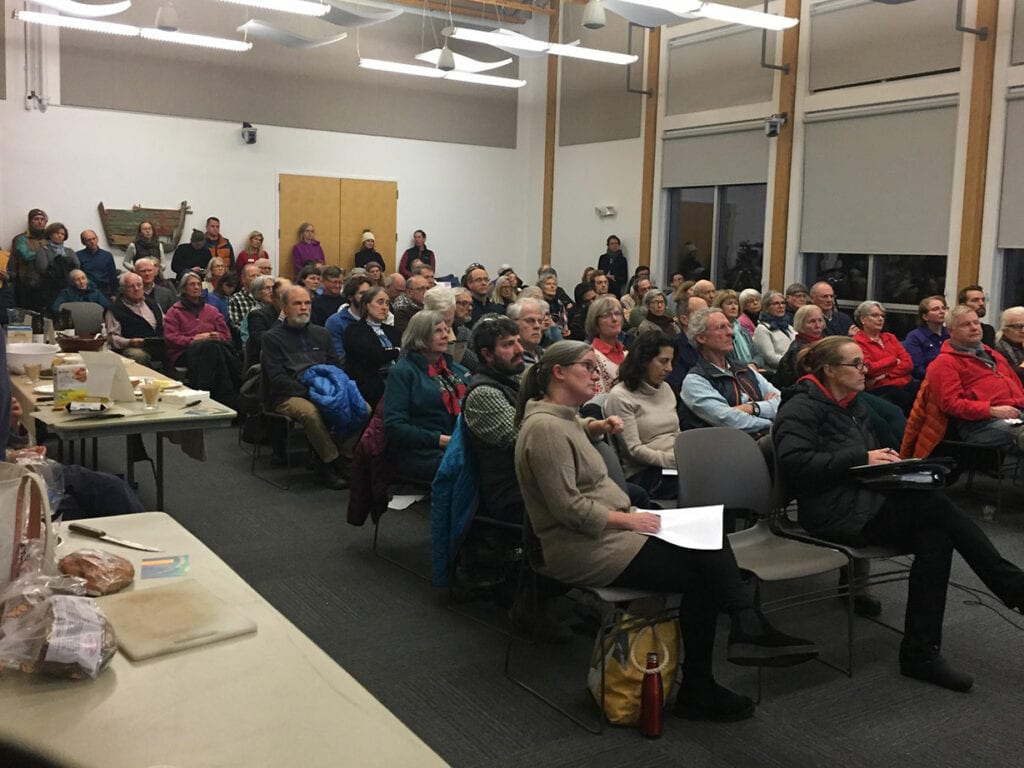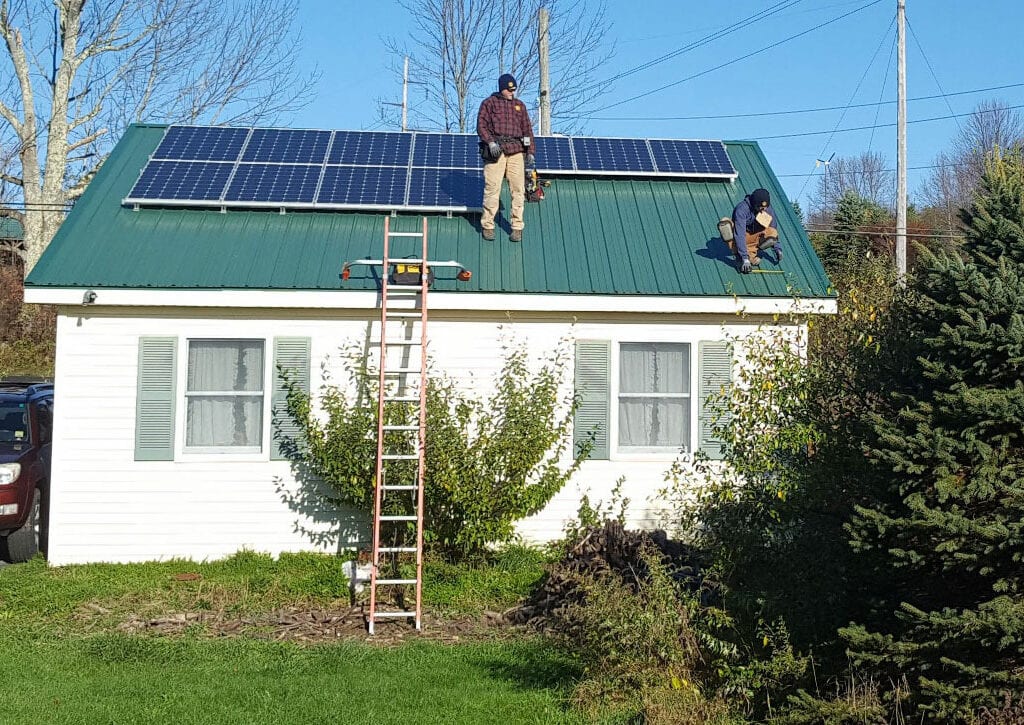States are laboratories for policy innovation, and nowhere is that happening more in Maine than on clean energy and climate action.
In 2019, Governor Janet Mills and bipartisan majorities of the Legislature passed new laws aimed at improving public health and strengthening the economy by reducing greenhouse gas emissions 80% below 1990 levels by 2050. The climate law also established objectives for a fair transition to a clean energy economy, one that benefits all Maine people and creates good new jobs. In a speech before the United Nations, the governor also laid out an interim goal to achieve carbon neutrality by 2045. She has joined the U.S. Climate Alliance, a group of 24 states, representing bipartisan governors and 55% of the U.S. population, committed to climate action consistent with the international Paris Agreement.
Acting on climate and clean energy solutions presents a once-in-a-lifetime opportunity to build a better future for Maine.
Achieving these carbon targets and other objectives will require a bold, concrete Climate Action Plan to be adopted by the Maine Climate Council, a diverse group of individuals across the state representing a variety of industries, interests, and perspectives. The Maine Climate Council and its seven different policy working groups began their work in late 2019 and will be working throughout 2020 to generate their best ideas about how to meet these goals.
Mainers who care about climate action and the transition to clean energy will need to be educated and engaged about the process to ensure we get the best possible outcome for Maine’s people and environment. Here’s our quick overview of why it matters:
Why Does a Strong Climate Action Plan Matter for Maine’s Future?
A strong Climate Action Plan from the Maine Climate Council is an opportunity to build a healthier Maine that boosts our economy and our environment and protects the way of life we all cherish. We can enjoy locally produced clean energy; reliable, clean, and healthy transportation options; and comfortable and energy-efficient homes and buildings.

If done correctly, the Climate Action Plan will be a powerful statement on what we can achieve by working together. But it can’t just be a statement. It must lay out concrete actions and steps the state must take to ween itself off polluting, expensive, imported fossil fuels to a clean local energy future that benefits all Mainers.
What is the Maine Climate Council?
The Maine Climate Council is made up of 39 members; all but four are appointed by the governor for three-year terms. These members include representatives from small businesses, municipalities, farms, and others across Maine. There are also two Democratic legislators and two Republican legislators. The Council is co-chaired by Hannah Pingree, Director of the Governor’s Office of Policy Innovation and the Future, and Department of Environmental Protection Commissioner Jerry Reid.
How Does It Work?
The Council kicked off its work in September 2019, and is organized into seven working groups based on topics including science, energy, transportation, buildings, coastal, natural lands, and community resilience. Those large working groups include an even broader set of Mainers and issue stakeholders, in addition to Council members. They are working right now to develop, model, and recommend strategies to meet Maine’s carbon pollution targets and the other goals in the climate law.

Governor Mills signs and climate bill into law, June 2019. LHahn/NRCM photo
You can get a schedule of upcoming meetings or explore presentations from past meetings on the Climate Council’s website: www.maine.gov/future/initiatives/climate/climate-council
In June 2020, the working groups will deliver their recommendations to the full Maine Climate Council, and in the summer and fall of 2020, the full Council will consider and prioritize strategies for the statewide Climate Action Plan with a final deadline for delivery to the Legislature by December 1, 2020.
To be effective, the Plan will need concrete actions and identify who is responsible for implementation. That might entail new programs for Efficiency Maine, a clean transportation investment strategy for the Department of Transportation, or policy proposals for the Legislature to adopt, for example.
The Council will then update the Plan every four years based on progress that has been achieved.
What are the Next Steps and How Can I Get Involved?
The development of a strong Climate Action Plan hinges on Maine people speaking up about the need to take action and the environmental, health, economic, and energy independence benefits we can enjoy if we do. Not surprisingly, special interests who are either vested in the status quo or funded by fossil fuel interests are trying to spread fear about this process without offering any real alternatives. The Natural Resources Council of Maine’s policy experts are deeply involved in the Council’s work and actively participating in the process, but Maine people need to speak up!

Freeport meeting with members of the Maine Climate Council: Educational events like this will be held across the state. (Photo by Shri Verrill)
You can get involved right now by submitting comments to the Maine Climate Council, attending an event or presentation about the Climate Council or one of its working groups, or writing a letter to the editor of your local paper about why you want Maine to implement a strong Climate Action Plan.
We Must Take Action to Build a Better Future for Mainers.
From farming to fishing to our recreational economy, climate change is impacting Maine’s way of life right now, so we need to act. The status quo doesn’t work for Maine people. We are overly reliant on costly, polluting home heating oil to heat our homes. We’re stuck with a transportation system that often makes getting where you need to be difficult, expensive, and frustrating.
Maine must act as a leader, by showing others how to transition to a clean energy economy. But there’s also another much more important reason: Acting on climate and clean energy solutions presents a once-in-a-lifetime opportunity to build a better future for Maine.

That is why the work of the Maine Climate Council and the actions that will be embedded in the Climate Action Plan must reflect the seriousness and scope of the challenge, and the enormous positive opportunities ahead.
Let’s get started!
—Dylan Voorhees, NRCM Climate & Clean Energy Director











Mr. Dylan Voorhees,
Congratulations on achieving this position, and I wish you well. I grew up in the summers of my childhood in my grandmother’s home on the coast of Hancock Country, Maine, and have close relatives in Freeport and Bar Harbor who are community leaders. Maine is my spiritual home and the reason I rose to become our nation’s top lawyer for all EPA investigations of pollution crime. I then completed my career with 17 years doing foreign environmental assistance for the U.S. I want to call your attention to http://www.fightingpollutionbook.com, which could inform your efforts particularly by engaging younger people, and if you would like a complimentary copy please reply telling me where to mail it.
All the best,
Richard Emory
Thank you very much for taking the time to read my blog, Richard. We would be pleased to receive a copy of your book, which could be sent to my attention at: NRCM, 3 Wade St, Augusta, ME 04330. Thank you for your important work over many years at the EPA. If you are ever in Augusta please stop by and say hello to me, NRCM Clean Energy Attorney Sue Ely, Federal Program Director Emmie Theberge, and other members of our team. – Dylan